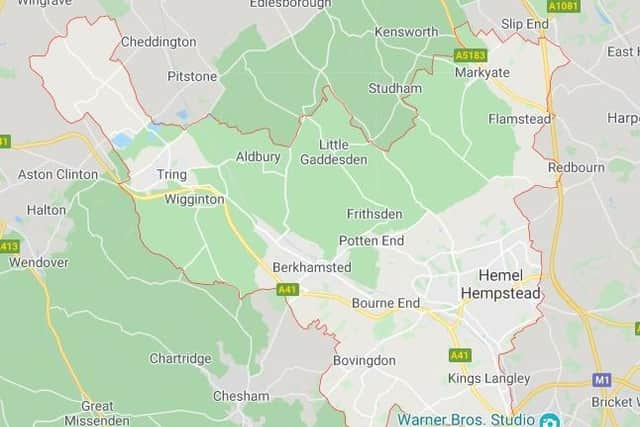More than 4,000 Dacorum households suffer from fuel poverty
and live on Freeview channel 276
Charity National Energy Action says 10,000 people in the UK lose their lives to a cold home each year, and that "we should be more alert than ever" to the problem's health impact amid the coronavirus pandemic.
Data from the Department for Business, Energy and Industrial Strategy shows that 7 per cent of the 63,925 households in Dacorum faced energy bills that pushed them into poverty in 2018 – the most recent year for which figures are available.
Advertisement
Advertisement
It means 4,700 of households in the area were fuel poor, with the rate falling from from 8 per cent in 2017.


Across the East of England, 9 per cent of households could not afford their bills in 2018.
A household is considered to be fuel poor if their energy costs are above the national median, and if meeting those costs would push them below the poverty line.
The 244,000 fuel poor households in the East of England were, on average, £375 short of being able to afford their energy bills each year, according to BEIS figures.
Advertisement
Advertisement
Around 2.4 million households were suffering from fuel poverty across England in 2018 – 10.3 per cent of homes.
Although that was down from 11 per cent in 2017, the average gap between the bills fuel-poor households faced and what they could afford to pay increased from £328 in 2017 to £334 in 2018.
Projections show the gap was likely to have been even higher in 2019, at £354, with 10.4 per cent of homes in fuel poverty last year.
The Government has set targets to improve the energy efficiency of buildings that households in fuel poverty live in.
Advertisement
Advertisement
It aims to ensure that "as many fuel-poor households as reasonably practicable" achieve a minimum efficiency rating of Band C by 2030, with interim goals of Band E by 2020 and Band D in 2025.
Emergency measures to protect the energy supply of at-risk people during Covid-19 disruption were agreed by the Government and the energy industry in March.
Adam Scorer, chief executive of National Energy Action, said the Government should take further steps to avoid a "deadly collision" between the virus and fuel poverty-related mortality amid a possible second outbreak this winter.
He added: "Every year around 10,000 people die directly as a result of a cold home. Many thousands more who cannot afford to keep their homes warm are hospitalised, suffer from a severe respiratory condition or just shiver in damp, cold homes.
Advertisement
Advertisement
“The impact of Covid-19 is truly horrific. But we have been fortunate that, so far, the virus has struck hard during warmer weather.
“Cold homes create underlying medical conditions. They take thousands of lives. Deaths and suffering from fuel poverty are not novel, unimaginable or unprecedented. It is an annual catalogue of failure to protect the most vulnerable.
"We know the solutions. At this precise moment we should be more alert to these issues than ever before.”
A BEIS spokeswoman said: "No-one should be cold in their own home. That is why we are protecting all households from rip-off deals with our energy price cap, improving the energy efficiency of low-income households and giving extra money to pensioners during the winter."
A message from the Editor:
Advertisement
Advertisement
Thank you for reading this story on our website. While I have your attention, I also have an important request to make of you.
In order for us to continue to provide high quality and trusted local news on this free-to-read site, I am asking you to also please purchase a copy of our newspaper when you do your weekly shop.
Our journalists are highly trained and our content is independently regulated by IPSO to some of the most rigorous standards in the world. But being your eyes and ears comes at a price.
So we need your support more than ever to buy our newspapers during this crisis.
Advertisement
Advertisement
With the coronavirus lockdown having a major impact on many of our local valued advertisers - and consequently the advertising that we receive - we are more reliant than ever on you helping us to provide you with news and information by buying a copy of our newspaper.